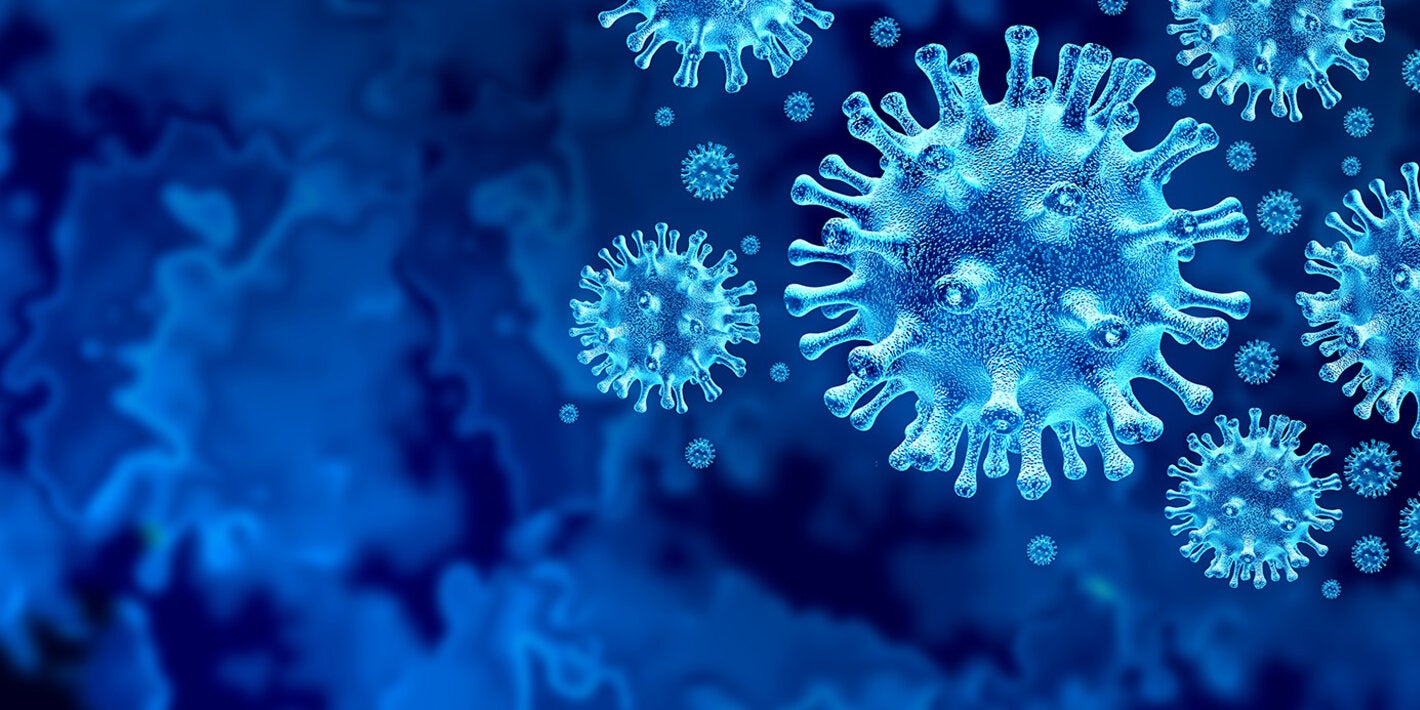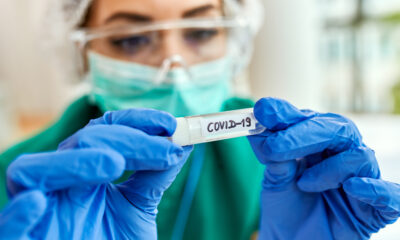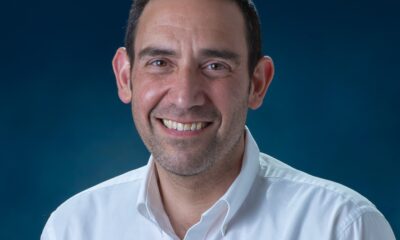
Banner

‘Wake up!’ say doctors, as third wave ramps up
Communal experts this week issued a stern warning to “catch a wake up” as the community has been hard hit by death, severe illness, and an unprecedented number of infections which continue to rise daily during the third wave of the COVID-19 pandemic.
“This is extremely severe,” warned Dr Richard Friedland, the chief executive of Netcare Group. “In Gauteng, we are in the eye of the storm, with things set to get a lot worse than they are.
“We should all be doing what we can to prevent a single death, to prevent people from having to be admitted to hospital,” he said.
The death rate has risen at hospitals, and hospital stays are about 20% longer, exacerbating the shortage of beds, especially in Gauteng, which is leading the uptick in infections.
“As I walk through our COVID-19 units, I see people struggling to breathe, fighting to survive this shocking pandemic. Every day, we are reminded of the pain, the suffering, and the enormous loss that it brings,” Friedland said.
Issuing a plea to the community to be hyper vigilant, he said, “I want to be abundantly clear that there can be no place for a lackadaisical approach.”
Several doctors this week told the SA Jewish Report that the situation was dire, with one doctor describing it as a “battlefield”.
“Patients, some quite young with no comorbidities, are really sick, with the vast majority on one form of ventilation or another,” said Dr Carron Zinman of Netcare Linksfield Hospital.
“Some severely ill patients are being temporarily managed in casualty because there are simply no intensive-care beds available at other hospitals,” she said.
“We are seeing a fairly young cohort, some with no underlying conditions, who are becoming seriously ill. The variants are more virulent and transmissible. We have had quite a lot of patients who have had COVID-19 before or who have received the vaccine, and got it.”
“We treat more aggressively, but there’s still no magic drug. We’re doing everything we can to turn the inflammatory response around. It takes some longer than others,” she said.
“Sadly, some people over 60 believe that once they have had the virus or the vaccine, they are safe. They aren’t. A lot of families including couples and their children are being infected,” she said.
At the time of going to print, Hatzolah had 501 active patients with 64 patients requiring oxygen at home. At least 11.7% of the active cases include children and young adults under the age of 20.
“There are a higher number of younger people including children than in the previous waves,” said Dr Anton Meyberg of Netcare Linksfield Hospital.
Sadly, the majority of patients are still the elderly over 60, but doctors have noticed a rise in the number of patients between the ages of 40 to 60, many requiring hospital admission.
There appears to be a disproportionately higher number of cases within the community, with doctors putting this down to complacency and carelessness about observing protocols.
“There is more testing, but people aren’t following the rules,” said Meyberg, “People who have been vaccinated are becoming lax, and there is a large asymptomatic spread of the virus.”
The country technically entered its third wave on Thursday, 10 June. According to the Ministerial Advisory Committee on COVID-19, a new wave starts when the seven-day moving average of new infections surpasses 30% of the previous wave.
More than 70% of the new cases are now in Gauteng and the Western Cape, where there is evidence of a resurgence after a period of recovery, and there are daily increases in the Eastern Cape and KwaZulu-Natal.
According to experts, the next two weeks will be particularly severe in Gauteng as the numbers steadily increase. Cape Town is a few weeks behind, they say.
Private-sector hospital admissions have increased four-fold since April. More than 500 patients are being admitted a day in the private sector in Gauteng, which is putting enormous strain on emergency departments fighting to open as many beds as possible to make space.
According to Hatzolah Chairperson Lance Abramson, there were 263 active cases at the peak of the first wave, 333 cases at the peak of the second wave, and now there are more than 500 active cases “with no peak in sight yet”.
“There are a staggering number of active cases in the Johannesburg Jewish community,” he said.
“Ambulances are transporting multiple COVID-19-positive patients to hospitals daily, where it is sometimes difficult to find a hospital bed. Patients are sometimes having to wait in ambulances in the parking lots of hospitals. This is very challenging for teams on the ground,” he said.
The organisation is also looking after 64 patients on home oxygen where they are closely monitored, Abramson said.
The organisation’s nurses are seeing between 80 to 100 patients a day.
Interestingly, Hatzolah has had 238 patients on the programme who have had a vaccine. Of those, 171 had received the first Pfizer vaccine, and 83 had received the Johnson & Johnson vaccine, two the AstraZeneca, and one Moderna. Thirty eight patients have been fully vaccinated and of those, only one required hospitalisation and has since recovered, he said.
According to Dr Ryan Noach, the chief executive of Discovery Health, globally, vaccinations have materially slowed the progression of new cases and deaths. There are early signs of reduced COVID-19 infection rates among the vaccinated pollution in South Africa post 15 days after vaccination.
“There are signs that the first dose is working, with early data showing that there are less admissions post vaccination and fewer deaths,” he said.
Worryingly, he said, “The data points to the potential for a very severe third wave, and we’re seeing the beginning of it only now.”
He said more than 50% of adults 70 years and older require admission to hospital.
“Hospital admissions in wave three have reached the level of admissions at the peak in wave one. There are currently 2 012 Discovery members admitted to hospital, of which 526 are in intensive-care, and 275 require ventilation.
“A large number of people are showing evidence of reinfections. Discovery members who contracted COVID-19 in the first wave have again contracted COVID-19 in the second wave. Three members have now tested positive three times,” Noach said.
On 13 June, President Cyril Ramaphosa confirmed that two million Johnson & Johnson (J&J) doses would have to be destroyed because the United States regulator, the Food and Drug Administration, found that the main ingredient with which they were made wasn’t safe for consumption.
As a result, South Africa has no J&J doses to administer at present, setting the country back in its vaccine roll-out in the midst of a third wave. The good news is that, according to the Bhekisisa Centre for Health Journalism, J&J will replace all the doses within the next two weeks, with 300 000 due to land within a few days and another million to be released by Aspen’s Eastern Cape plant next week.
In the meantime, doctors have appealed to people to be hyper vigilant and maintain all non-pharmaceutical measures.











Deanna Isaacs
June 17, 2021 at 2:01 pm
I see how lax people have become they seem to think they will never get the virus for some reason or other please people none of us are special just take care of yourself and stop socializing
Gertie Tobias
June 19, 2021 at 8:52 pm
Should I scribe at a school during this time or is it too dangerous